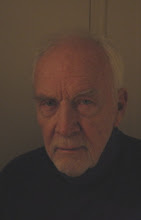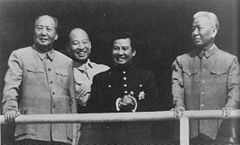SOONER or LATER, HUMANITY WILL REASSERT ITSELF and punish the PATHETIC MASS- MURDERING THIEVES, WHO NOW PARADE and POSE AS RIGHTFUL RULERS of the EARTH.
The General Treaty for the Renunciation of War, The World Peace Act, previously The Kellogg-Briand Pact, became part of the US Constitution (as did Article 6 and 7 of the Nuremberg Principles twenty-two years later), upon being approved by the US Senate 85-1 and reads:
"The High Contracting Parties solemnly declare in the names of their respective peoples that they condemn recourse to war for the solution of international controversies, and renounce it, as an instrument of national policy in their relations with one another.
After negotiations, the pact was signed in Paris at the French Foreign Ministry by the representatives from Australia, Belgium, Canada, Czechoslovakia, France, Germany, India, the Irish Free State, Italy, Japan, New Zealand, Poland, South Africa, the United Kingdom and the United States. It was proclaimed to go into effect on July 24, 1929. By that date, the following nations had deposited instruments of definitive adherence to the pact: Afghanistan, Albania, Austria, Bulgaria, China, Cuba, Denmark, Dominican Republic, Egypt, Estonia, Ethiopia, Finland, Guatemala, Hungary, Iceland, Latvia, Liberia, Lithuania, the Netherlands, Nicaragua, Norway, Panama, Peru, Portugal, Romania, the Soviet Union, the Kingdom of the Serbs, Croats, and Slovenes, Siam, Spain, Sweden, and Turkey. Eight further states joined after that date: Persia, Greece, Honduras, Chile, Luxembourg, Danzig, Costa Rica and Venezuela.
The 1928 World Peace Act was concluded outside the League of Nations, and remains a binding treaty under international law. In the United States, it remains in force as federal law (see U.S. Const. art. VI). One month following its conclusion, a similar agreement, General Act for the Pacific Settlement of International Disputes, was concluded in Geneva, which obliged its signatory parties to establish conciliation commissions and an arbitration tribunal in any case of dispute, and the opportunity to take failed disputes to the Permanent Court of International Justice.
Article VI Clause 2 of the US Constitution states that "[A]ll Treaties made, under the Authority of the United State, shall be the supreme Law of the Land; and the Judges in every State shall be bound thereby, anything in the Constitution or Laws of any State to the contrary notwithstanding."














